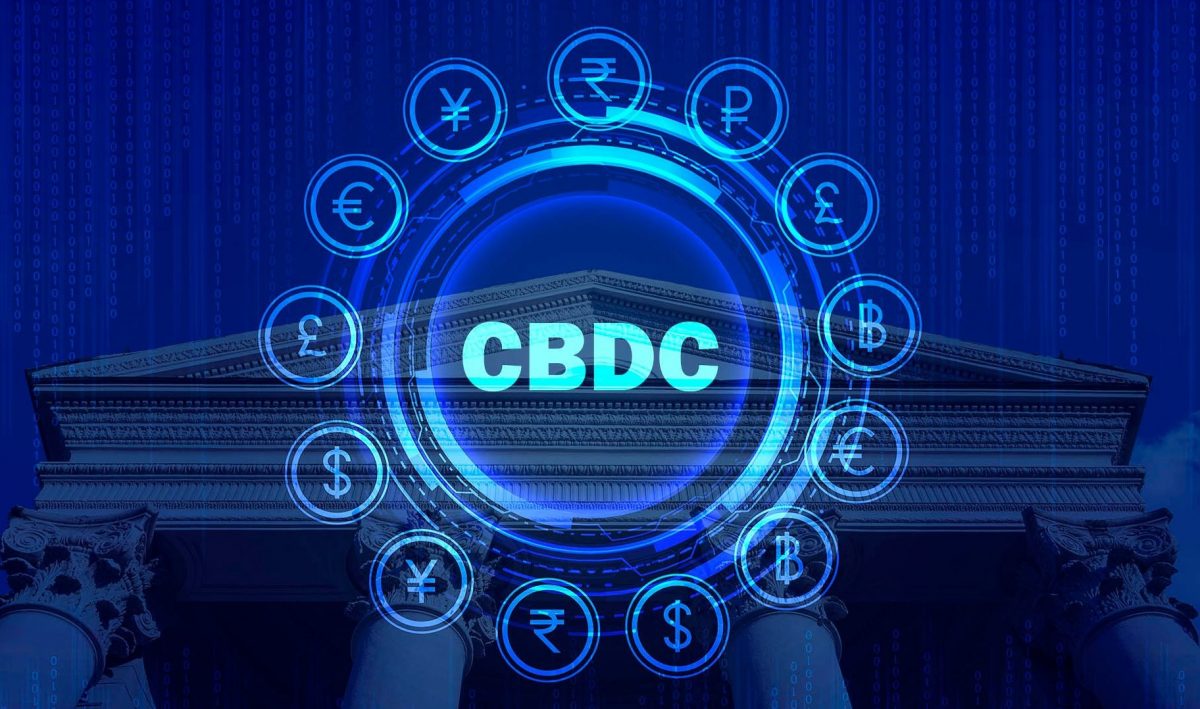Should CBDCs be Considered a Competitor to Cryptocurencies?
27.10.2024 21:00 2 min. read Kosta Gushterov
India's approach to cryptocurrencies and central bank digital currencies (CBDCs) is sparking debate, with some suggesting CBDCs could have advantages over private cryptocurrencies.
Sumit Gupta, CEO of CoinDCX, argued that CBDCs and cryptocurrencies like Bitcoin serve different purposes and should not be seen as competitors. His comments raised concerns within the crypto community about CBDCs resembling “digital fiat” and carrying inflation risks.
Gupta stated that CBDCs, issued by the central bank, allow for effective monetary policy management. However, skepticism remains, with critics like Jack Booth of TON Society warning that CBDCs could undermine personal sovereignty by giving government officials undue control over individual funds. This sentiment reflects a broader concern about the potential for CBDCs to exacerbate existing distrust in government institutions, particularly in Western nations.
While India has considered banning private cryptocurrencies, Gupta believes the country supports fintech innovation. He pointed to recent regulatory progress, including the Supreme Court’s decision to lift the Reserve Bank of India’s ban on crypto-related banking.
This ruling has provided a clearer path for crypto exchanges to operate under compliance with the Financial Intelligence Unit’s guidelines. Gupta urged the government to ensure compliance among all players and advocated for tax relief to prevent users from migrating to offshore platforms.
The discussion surrounding India’s regulatory framework is vital as the nation aims to strike a balance between fostering innovation and ensuring security in the burgeoning digital economy. As the global landscape for cryptocurrencies evolves, India’s decisions could significantly impact how the country positions itself in the competitive world of digital finance.
Embracing a regulatory approach that supports both CBDCs and cryptocurrencies could position India as a leader in the digital economy, attracting investment and talent to its tech ecosystem.
-
1
Chinese Tech Firms Turn to Crypto for Treasury Diversification
26.06.2025 17:00 1 min. read -
2
What Are the Key Trends in European Consumer Payments for 2024?
29.06.2025 8:00 2 min. read -
3
FTX Halts Recovery Payments in 49 Countries: Here Is the List
04.07.2025 18:00 2 min. read -
4
What Brian Armstrong’s New Stats Reveal About Institutional Crypto Growth
29.06.2025 15:00 2 min. read -
5
Here is Why the Fed May Cut Rates Earlier Than Expected, According to Goldman Sachs
08.07.2025 15:00 2 min. read
Banking Trade Groups Urge OCC to Halt Digital Trust Bank Approvals
Five major banking associations are urging the Office of the Comptroller of the Currency (OCC) to delay approval of new national trust bank charters for digital asset firms, including Ripple, Fidelity Digital Assets, National Digital TR CO, and First National Digital Currency Bank.
U.S. Public Pension Giant Boosts Palantir and Strategy Holdings in Q2
According to a report by Barron’s, the Ohio Public Employees Retirement System (OPERS) made notable adjustments to its portfolio in Q2 2025, significantly increasing exposure to Palantir and Strategy while cutting back on Lyft.
Key Crypto Events to Watch in the Next Months
As crypto markets gain momentum heading into the second half of 2025, a series of pivotal regulatory and macroeconomic events are poised to shape sentiment, liquidity, and price action across the space.
Here is Why Stablecoins Are Booming, According to Tether CEO
In a recent interview with Bankless, Tether CEO Paolo Ardoino shed light on the growing adoption of stablecoins like USDT, linking their rise to global economic instability and shifting generational dynamics.
-
1
Chinese Tech Firms Turn to Crypto for Treasury Diversification
26.06.2025 17:00 1 min. read -
2
What Are the Key Trends in European Consumer Payments for 2024?
29.06.2025 8:00 2 min. read -
3
FTX Halts Recovery Payments in 49 Countries: Here Is the List
04.07.2025 18:00 2 min. read -
4
What Brian Armstrong’s New Stats Reveal About Institutional Crypto Growth
29.06.2025 15:00 2 min. read -
5
Here is Why the Fed May Cut Rates Earlier Than Expected, According to Goldman Sachs
08.07.2025 15:00 2 min. read


